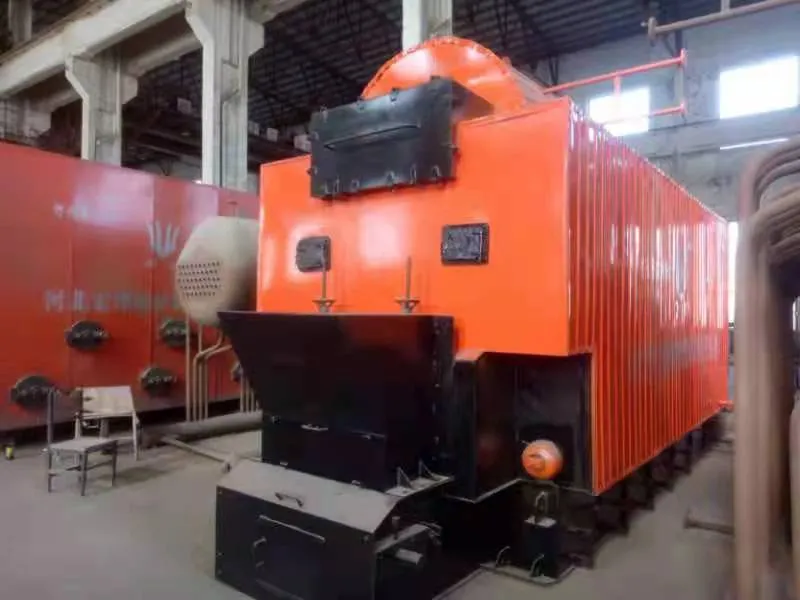
Nov . 04, 2024 21:32 Back to list
hot water boiler furnace system
Hot Water Boiler Furnace System An Overview
A hot water boiler furnace system is an essential component in many residential and commercial heating systems. It is designed to produce hot water, which is then circulated through pipes to heat spaces or supply hot water for various applications. This article delves into the fundamental components, operation, advantages, disadvantages, and maintenance of hot water boiler furnace systems.
Components of a Hot Water Boiler Furnace System
A typical hot water boiler furnace system consists of several crucial components
1. Boiler Unit At the heart of the system is the boiler, which heats water using various fuels such as natural gas, propane, oil, or electricity. The boiler can be classified into different types, including conventional boilers, condensing boilers, and combination boilers, based on their efficiency and application.
2. Heat Exchanger This component transfers heat from the burner to the water. The efficiency of the heat exchanger significantly affects the overall performance of the boiler.
3. Pump A circulating pump is used to move hot water from the boiler through the heating system and back to the boiler. The pump ensures a consistent flow, maintaining an even temperature throughout the heated spaces.
4. Expansion Tank As water heats up, it expands. The expansion tank accommodates this increase in volume, preventing excessive pressure from damaging the system.
5. Controls and Thermostats Modern systems are equipped with sophisticated controls and thermostats to monitor and maintain desired temperatures, optimizing energy usage and enhancing comfort levels.
Operation of the Hot Water Boiler Furnace System
The operation of a hot water boiler furnace system begins with the ignition of the fuel source. The burner generates heat, which is transferred to the heat exchanger, warming the water inside the boiler. Once the water reaches the desired temperature, the circulating pump activates, pushing the hot water through pipes to radiators, baseboards, or underfloor heating systems throughout the building.
As the water releases its heat, it cools down and returns to the boiler to be reheated, creating a continuous loop. A well-maintained system can efficiently manage energy use, ensuring that comfort levels are maintained without exorbitant energy bills.
Advantages of Hot Water Boiler Furnace Systems
Hot water boiler furnace systems offer several advantages
2. Comfort These systems provide consistent heating throughout a space, ensuring comfort during cold weather.
hot water boiler furnace system

3. Versatility Hot water can be used not only for space heating but also for domestic hot water needs, making the system versatile for various applications.
4. Longevity When properly maintained, boilers can last significantly longer than other heating systems, often exceeding 15 to 20 years.
Disadvantages of Hot Water Boiler Furnace Systems
Despite their benefits, there are also some disadvantages to consider
1. Initial Cost The upfront cost of purchasing and installing a hot water boiler furnace system can be higher than that of other heating systems.
2. Maintenance Requirements Regular maintenance is necessary to ensure optimal performance and longevity, which can add to the overall cost.
3. Space Requirements Boilers can take up considerable space, which may be a drawback in smaller homes or buildings.
4. Potential for Leaks If a boiler malfunctions, it can lead to leaks and water damage if not addressed promptly.
Maintenance Tips
To ensure the longevity and efficiency of a hot water boiler furnace system, regular maintenance is crucial. Here are a few tips
- Schedule Professional Inspections Have a certified technician inspect the system annually to identify any potential issues before they become major problems.
- Check the Pressure Monitor the system's pressure regularly. Ensure it is within the manufacturer’s recommended range.
- Bleed Radiators If air gets trapped in the radiators, it can cause inefficiency. Bleed them periodically to maintain optimal heat distribution.
- Flush the System Sediment can build up in the boiler over time. Flushing the system can help remove debris and improve performance.
Conclusion
In conclusion, a hot water boiler furnace system is a reliable and efficient method for heating spaces and providing hot water for various needs. By understanding its components, operation, advantages, and maintenance requirements, homeowners and facility managers can make informed decisions about their heating systems, ultimately enhancing comfort and optimizing energy consumption.
-
High-Efficiency Commercial Oil Fired Steam Boiler for Industry
NewsJul.30,2025
-
High-Efficiency Biomass Fired Thermal Oil Boiler Solutions
NewsJul.30,2025
-
High Efficiency Gas Fired Thermal Oil Boiler for Industrial Heating
NewsJul.29,2025
-
High-Efficiency Gas Fired Hot Water Boiler for Sale – Reliable & Affordable
NewsJul.29,2025
-
High Efficiency Biomass Fired Hot Water Boiler for Industrial and Commercial Use
NewsJul.29,2025
-
High-Efficiency Biomass Fired Hot Water Boiler for Industrial Use
NewsJul.28,2025
Related PRODUCTS






















